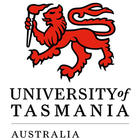Graduate Certificate in Organizational Resilience
- Posted by University of Tasmania (UTAS)
- Home
- Courses
- University of Tasmania (UTAS)
- Graduate Certificate in Organizational Resilience
Graduate Certificate in Organizational Resilience
The Graduate Certificate in Organisational Resilience aims to develop independent and knowledgeable practitioners who are leaders in organisational resilience. With a strong reputation in resilience research and access to national and international industry partners from the public, private and not-for-profit sectors, the Graduate Certificate in Organisational Resilience will develop students’…
Categories
COURSE DESCRIPTION
The Graduate Certificate in Organisational Resilience aims to develop independent and knowledgeable practitioners who are leaders in organisational resilience. With a strong reputation in resilience research and access to national and international industry partners from the public, private and not-for-profit sectors, the Graduate Certificate in Organisational Resilience will develop students’ theoretical knowledge and practitioner-relevant skills.
The course is designed for those seeking to promote and implement change across a range of organisations that include those from the public, private and not-for-profit sectors. Students will develop knowledge of contemporary organisational resilience theory and evidence-based practices that can be applied to their current or future roles in organisational resilience, crisis management, protective security and/or business continuity management.
Learning Outcomes
Comprehend and analyse theoretical perspectives in organisational resilience.
Communicate by written modes, knowledge of organisational resilience into clear and coherent expositions to academic and industry audiences.
Synthesise and apply theoretical perspectives and concepts to provide solutions to real-world cases in organisational resilience.
Course structure
Completion of the Graduate Certificate in Organisational Resilience requires of 50 credit points comprising the following units:
Core units
HSP504Leading Resilient Organisations
HSP505Crisis Management
HSP601Protective Security
HSP602Business Continuity Management
REQUIREMENTS
Entry into the Graduate Certificate in Organisational Resilience degree requires;
a bachelor’s degree in any field, or;
admission to a Master of Business Administration or equivalent at University of Tasmania or other institutions, or;
work experience of at least three years in business continuity management, emergency management, crisis management, protective security, organisational resilience, company directors, HR managers, or other senior roles in operational or general management.
IELTS (Academic) – 6.0 (no individual band less than 6.0)
TOEFL (iBT) 72 (no skill below: Reading 16; Listening 16; Speaking 18; Writing 22)
PTE Academic 50 with no score lower than 50
UTAS Access-English Level 7 – 60% (no individual score less than 60%)
Cambridge CAE (Certificate of Advanced English) – B Grade
Cambridge CPE (Certificate of Proficiency in English) – C Grade
Cambridge BEC (Business English Certificate) Higher – C Grade.
EDUCATIONAL INSTITUTION
The University of Tasmania was officially founded on 1st January 1890 and is located at Sandy Bay, Tasmania. In addition to the main campus at Sandy Bay, it also operates out of the Newnham Campus and the Cradle Coast Campus. The most popular courses offered are the environmental studies that include wilderness management, marine sciences and indigenous studies in Tasmanian literature. Other unconventional courses include agriculture development, studies on the community and population and ocean study programs. The university also comprises of a Music Conservatorium, Art school and a School of Clinical studies.
The University of Tasmania was officially founded on 1st January 1890 and is located at Sandy Bay, Tasmania. In addition to the main campus at Sandy Bay, it also operates out of the Newnham Campus and the Cradle Coast Campus. The most popular courses offered are the environmental studies that include wilderness management, marine sciences and indigenous studies in Tasmanian literature. Other unconventional courses include agriculture development, studies on the community and population and ocean study programs. The university also comprises of a Music Conservatorium, Art school and a School of Clinical studies.




